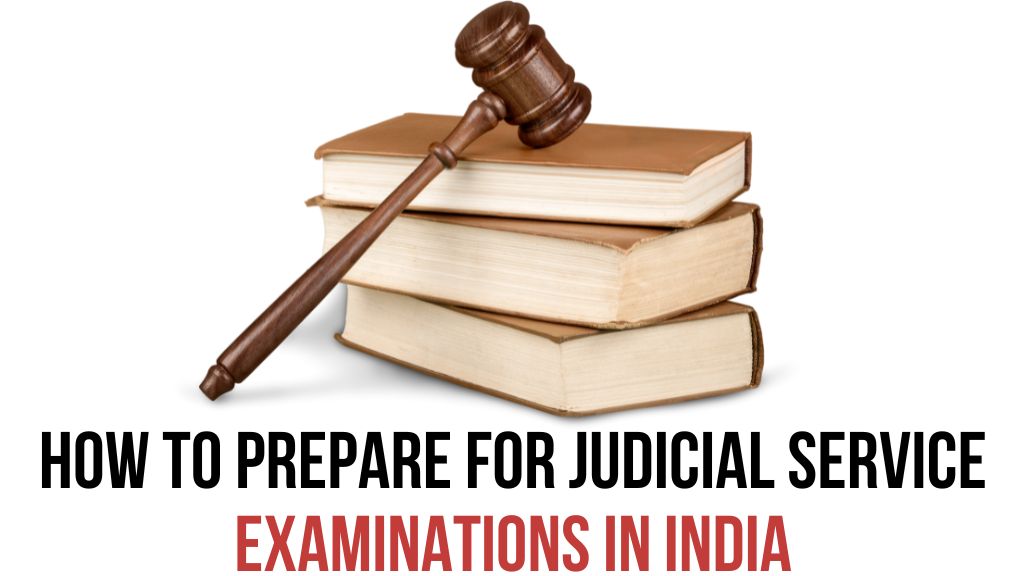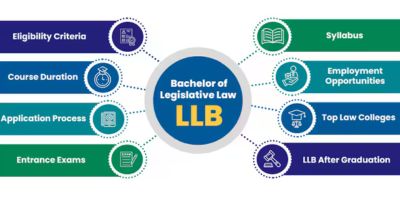How to Prepare for Judicial Service
Examinations in India

Introduction
The Judicial Service Examination, also known as the PCS (J) or Civil Judge Exam, is one of the most prestigious exams in India for law graduates. It opens the door to a respected career in the judiciary, offering authority, stability, and the opportunity to serve society. However, cracking the exam requires consistent preparation, the right strategy, and an in-depth understanding of law.
Judicial Service Examination Eligibility
- Educational Qualification: A degree in law (LLB) from a recognized university.
- Age Limit: Generally 21–35 years (varies by state).
- Nationality: Candidate must be an Indian citizen.
- Other Requirements: Some states require the candidate to be enrolled as an advocate under the Advocates Act.
- Supreme Court ruling: A Supreme Court ruling in May 2025 mandated at least three years of legal practice for entry-level judicial service posts, a requirement that most states now adhere to. (2025 SCC OnLine SC 1184)

How to Prepare for Judiciary Without Coaching.
Build Strong Basics: Focus on core law subjects like Constitutional Law, BNS, CPC, BNSS, BSA, and Contract Law.
- Standard Books: Use Bare Acts, leading commentaries, and previous year question papers.
- Daily Answer Writing: Practice descriptive answers to improve speed and accuracy.
- Case Laws & Recent Judgments: Stay updated with Supreme Court and High Court rulings.
- Online Resources: Leverage free mock tests, lectures, and law blogs for clarity.

Best Time Table for Judiciary Preparation.
- 6:00 AM – 8:00 AM: Revise bare acts (focus on sections & definitions).
- 8:00 AM – 10:00 AM: Core law subject (BNS, CPC, BNSS).
- 10:30 AM – 12:30 PM: Minor subjects (BSA, Contract, Torts).
- 1:30 PM – 3:00 PM: GK/Current Affairs, Constitution updates.
- 3:00 PM – 5:00 PM: Previous year papers & answer writing practice.
- 6:00 PM – 8:00 PM: Language paper preparation (English/Hindi).
- 9:00 PM – 10:00 PM: Case law updates + revision.
How to Crack Judiciary Exam in the First Attempt.
- Start Early: Begin preparation during your LLB years if possible.
- Make Notes: Prepare concise notes for every subject for quick revision.
- Focus on Mains: Don’t just prepare for prelims; mains answers decide the rank.
- Regular Mock Tests: Attempt weekly tests for time management.
- Balanced Approach: Cover law, general knowledge, and language equally.
Advantages of Judicial Service Examination.
- Prestigious Career – Judges hold one of the most respected positions in society.
- Job Security – Being a government position, it ensures stability and long-term security.
- Growth Opportunities – With promotions, one can advance to higher positions in the judiciary.
- Work-Life Balance – Compared to many other legal professions, the judiciary offers a structured routine.
Benefits of a Judicial Career.
- Job Security & Prestige: A judge enjoys respect and authority in society.
- Attractive Salary & Perks: Government pay scale, allowances, and benefits.
- Work-Life Balance: Structured working hours compared to private practice.
- Opportunity to Serve Justice: Directly contribute to maintaining law and order.
- Growth & Stability: Scope to rise to higher judiciary levels.
Conclusion
The Judicial Service Examination demands discipline, dedication, and a well-structured study plan. Whether you choose coaching or prepare independently, consistency and smart preparation are the keys. Remember, cracking the exam in the first attempt is possible with the right timetable, thorough understanding of laws, and regular practice.
Start today, stay focused, and your dream of becoming a judge will soon turn into reality. ⚖️
timetable for judiciary preparation, best time table for judiciary preparation, how to prepare for judiciary without coaching, how to crack judiciary exam in first attempt, judicial service examination eligibility
